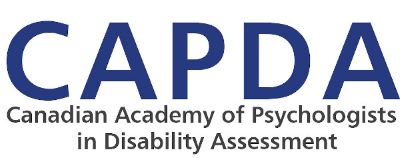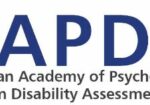Webinar: Improving the Methodology for Assessing Cognitive Impairment
Improving the Methodology for Assessing Cognitive Impairment
April 25, 2025 2:00 – 4:00 PM EDT VIA ZOOM
The accurate identification and quantification of cognitive impairment is the sine qua non of clinical neuropsychological assessment. However, comprehensive, psychometrically sophisticated approaches to identifying and quantifying cognitive impairment, across a battery of tests, have not been widely adopted in research or in clinical practice. In this presentation, definitions of, and classification systems for, cognitive impairment will be reviewed. Several fundamental psychometric principles for interpreting a battery of test scores will be illustrated using analyses of standardization samples from co-normed batteries of tests (e.g., WAIS-IV/WMS-IV, NEPSY, D-KEFS, NIH Toolbox Cognition Battery, and NAB). Empirically based, psychometrically derived criteria for identifying mild cognitive impairment, applicable to children, adults, and older adults will be presented.
Learning Objectives
As a result of attending this presentation, attendees will be able to:
- Use refined definitions of cognitive impairment in research and clinical practice.
- Appreciate how social determinants of health and socioeconomic factors relate to the assessment of cognitive functioning.
- Apply analyses from co-normed batteries to inform decisions relating to whether combinations of low scores reflect acquired cognitive impairment.
- Explain how using different cut-off scores, and combinations of low scores, can improve the accuracy of identifying cognitive impairment in people with below average or above average intelligence.
NOTE: Presentations are intended for educational purposes and to stimulate respectful discussion and a deeper interest in the topic. The content of the presentation is not intended to replace your independent professional judgement regarding the nature, relevance, or application of the information presented. The opinions and statements made by the presenter are those of the presenter alone and not necessarily a reflection of CAPDA’s position on the matters discussed. CAPDA does not take any responsibility for the accuracy or completeness of the presentation.
THIS SESSION WILL NOT BE RECORDED
CLICK HERE TO REGISTER
About the Presenter
Dr. Grant L. Iverson Ph.D. is a Professor in the Department of Physical Medicine and Rehabilitation at Harvard Medical School. He served as the Chair for the Canadian Psychological Association Section on Clinical Neuropsychology from 2003-2010. He was a Member of the Board of Governors of the International Neuropsychological Society from 2008-2011. He was a member of the Board of Governors of the International Brain Injury Association (2012-2017). Over the past 15 years, he served as a consensus panel member for the 3rd, 4th, 5th, and 6th International Conferences on Concussion in Sport. He served as an Advisor to the Neurocognitive Disorders Workgroup (Traumatic Brain Injury) for the Diagnostic & Statistical Manual of Mental Disorders, 5th Edition (DSM-V). He also served as a founding member of the Traumatic Brain Injury Subcommittee of the Defense Health Board, a chartered civilian advisory board to the United States Secretary of Defense. He served as the President of the National Academy of Neuropsychology (2015), and as a member of the Board of Governors (2014-2018).
For more than 25 years, he has conducted research relating to the reliability, validity, and clinical accuracy of neuropsychological assessment. He is the lead investigator in a multi-year, programmatic research effort to develop and evaluate new evidence-based psychometric criteria for mild cognitive impairment in psychiatry and neurology. Over the course of his career, he has published (with colleagues) more than 600 articles, reviews, and book chapters. Some of his latest research can be viewed on PubMed: https://www.ncbi.nlm.nih.gov/pubmed/?term=Iverson+GL


